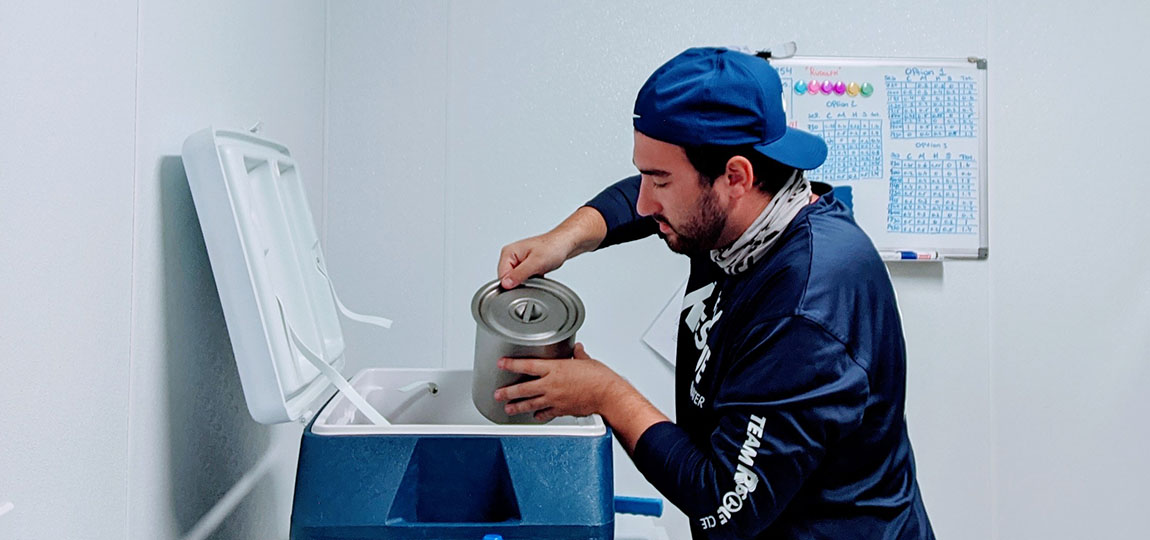Save the Whales (and Sea Turtles, and Dolphins and…)
Ben Delin ’21 helps respond to calls reporting animals in trouble as part of his internship at Florida’s Clearwater Marine Aquarium.By: Meghan Kita Friday, July 17, 2020 07:21 AM
 Ben Delin '21 prepares the diets for rehabbed and resident dolphins at Florida's Clearwater Marine Aquarium.
Ben Delin '21 prepares the diets for rehabbed and resident dolphins at Florida's Clearwater Marine Aquarium.As a rescue team intern at Florida’s Clearwater Marine Aquarium, Ben Delin ’21, a sustainability studies major, never knows what a day will bring. His full-time position is split between the aquarium itself, doing office work, and the long stretch of Florida’s west coast his team serves. They respond to calls reporting sea animals in trouble—stranded or beached or otherwise in need of assistance. For example, he recently aided in the relay of a sea turtle that had swallowed a fishing hook to the aquarium for treatment and the removal of the hook.
“People are putting stuff into the ocean and they don’t really think about what happens afterwards,” he says.
Delin was drawn to the internship because of the aquarium’s mission—it rescues and rehabilitates animals and keeps only those that can’t be safely released—as well as the specific things he’d learn as part of the rescue team. He eventually wants to go into environmental consulting or law, and he figured he would get the most direct experience in understanding environmental policy in a hands-on role like the one he has. For example, he’s learning how to perform rescues; guidelines for handling dolphins, sea turtles and manatees in the wild and in captivity; and fishing and waterway policies.
Delin also has a passion for the ocean. It’s where 50 to 80 percent of oxygen on earth comes from, he says, and it’s home to an enormous number of species. And he has seen firsthand the harm humans can do to marine animals, by hitting them with boats, entangling them in nets and relying on plastic products that too often end up in the ocean, and then, in those animals’ stomachs.
“It’s not all rescuing and helping. Some of the calls I’ve responded to will require a decision as to whether we can help the animal or if we have to euthanize,” he says. “Those are the calls that get you fired up to do the work.”
